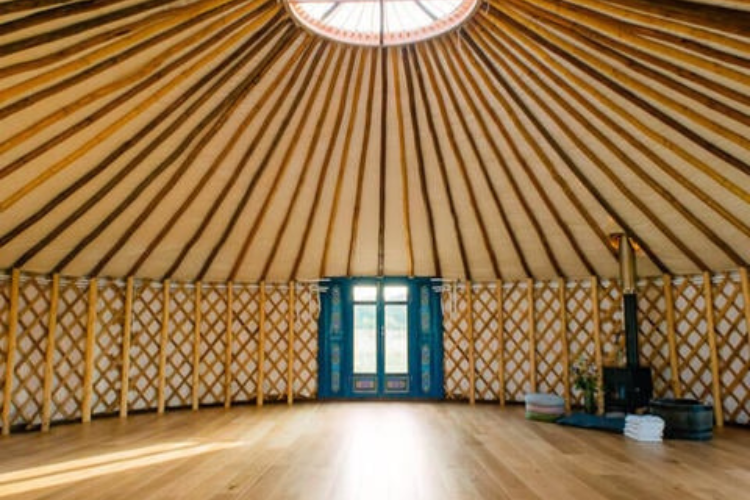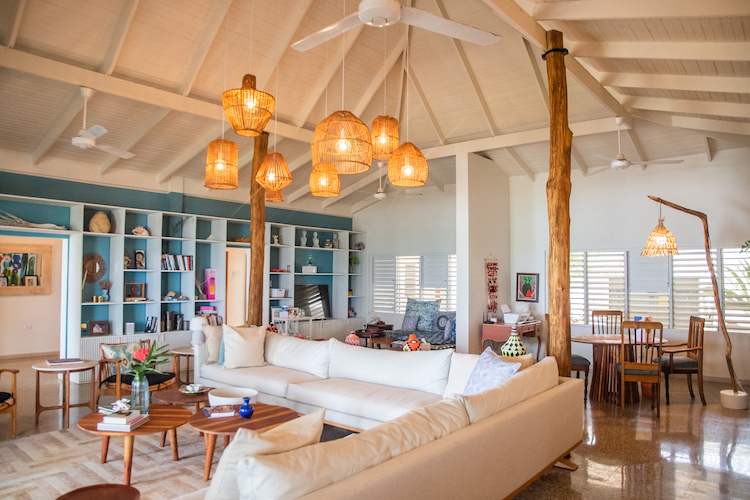
Questions About Psychedelic Retreats (Answered!)
It’s perfectly normal for beginners to have questions about psychedelic retreats — lots of questions!
After all, retreats are expensive and you can’t trust your well-being to just about anyone. We have fielded 6 common questions about psychedelic retreats and answered with our knowledge, and that of our retreat partners.
Table of Contents
7 Common Questions About Psychedelic Retreats:
Do psychedelic retreats work?
Are they dangerous?
Who am I entrusting with my care?
Why are retreats so expensive?
How do I get to the retreat from the airport?
What does preparing for your first psychedelic retreat entail?
Will I get some ‘me’ time?
We often get these questions (and more!) from our users. That’s why we’ve dedicated a whole post to answering them so you can make the best possible decisions and feel more confident about attending a psychedelic retreat.
Let’s get started!
Related Articles
Learn more about Ayahuasca on Frshminds:
- The Ultimate Ayahuasca Retreat Guide
- Must Read Info About Ayahuasca Retreats in Peru
- What is the Difference Between Ayahuasca and DMT?
- Join Your Peers on Ayahuasca Retreats In Spain
- 10 Best Ayahuasca Documentaries in 2022
- What is The Ayahuasca Preparation Diet?
- 10 Ways to Prepare for an Ayahuasca Retreat
- Journey Within: A Guide to Ayahuasca Retreats in Costa Rica
Question 1: Do Psychedelic Retreats Work?
Psychedelic retreats don’t always work. Just like traditional psychology, there’s no one-size-fits-all treatment or guarantee that it’ll work for you.
Still, Hannes Kettner, a research assistant at the Imperial College London, told The Guardian that “most psychedelic experiences result in increased well-being,” especially in guided settings with adequate emotional support.
In addition, there are ways to increase the likelihood of profound and lasting changes.
The first step is to clearly define your goals. It’s hard to know if it’s helping if you don’t distinctly know what you’re trying to accomplish! There are retreats specializing in different issues. Plus, different medicines help you achieve different outcomes.
The degree to which the retreat experience helps you is also tied to how committed you are to the program. If they instruct you to detox before you arrive, do it! If they give you integration exercises to do after the ceremony, do them! Laura Dawn, a US plant medicine devotee, recommends you focus on self-care, write down your thoughts, and meditate to integrate your retreat experience. Plus, a study by Synthesis Retreat and the Imperial College London found that retreat goers who attend psychotherapy or counseling, chat with people who had similar experiences, and spend time in nature experience a higher improvement in well-being than those who don’t.
So, as you can see, it doesn’t just come down to the plant medicine and retreat you choose — you have the power to make or break the outcome of your retreat experience.
Question 2: How Dangerous Is a Stay at a Psychedelic Retreat?
Staying at a psychedelic retreat isn’t dangerous.
Every year, tens of thousands of people attend retreats around the world and the vast majority have uneventful stays — aside from the intense spiritual and physical challenges a psychedelic trip comes with, that is. As always, you should do your research and approach a retreat visit with common sense:
Do Your Research
Find out if the retreat you want to go to is operating legally and if the ceremonies are conducted by trained professionals, in a controlled environment. Ask them questions directly until you’re satisfied. Read lots of reviews online, find previous retreat goers who can personally vouch for the facilitators, and get to know the retreat staff remotely before traveling there.

Consider the Retreat’s Location and/or Staff
You can choose a retreat that’s close to a hospital (as opposed to something very remote) or that has trained medical staff on-site.
Choose the Best Plant Medicine for You
For instance, psilocybin is most commonly used to treat depression and cancer-related distress; ayahuasca is better for those trying to overcome PTSD and ibogaine is most effective against addiction. You should also know that while psychedelics are almost always safe and non-addictive, ibogaine can be physically dangerous, and even deadly, if not properly administered.
Take Personal Safety Measures
Use common sense and take the same safety measures you would on any other trip. Female solo travelers can opt for retreats with all-female sessions or that are run by female practitioners.
Matthew Johnson, a psychiatrist and the Associate Director of the Johns Hopkins Center for Psychedelic and Consciousness Research, told says that people who don’t feel safe or can’t trust the people around them won’t fully surrender to the experience, meaning they can’t reap the benefits of psychedelic therapy. So do whatever it takes to be at ease before attending a retreat.
Question 3: Why Are Psychedelic Retreats So Expensive?
Psychedelic retreats are expensive — not due to the cost of plant medicines but because trained therapists, guides, instructors, cooks, a cleaning crew, rent, and utilities ARE very costly.
And, unlike traditional all-inclusive resorts that can run for hundreds or thousands of people at a time, their psychedelic counterparts typically only welcome a handful of guests at any given time.
“Expensive” is a vague definition, though. For context, let’s look at two retreat examples at opposing ends of the price spectrum so you get an idea of what to expect:
- A week-long stay at MycoMeditations, one of the best luxury psychedelic retreats in the world, costs between $4,300 and $11,400.

- A 4-day program at Atman Psilocybin Retreat, one of the best budget retreats in the world, costs between $2,495 and $3,995 but they also offer a low-income ticket program for people with limited financial means.

If you find a retreat with a price tag that seems too good to be true, it probably is. Make sure you find reviews or testimonials that vouch for that center before deciding to attend.
Question 4: How Do I Get to the Retreat From the Airport?
Most retreats offer transportation from and to the closest major airport or city, but getting to the pickup point is up to you.
If you’re coming from or going to a different place (other than the retreat’s typical pickup or drop-off point), you can still ask them to provide or help you arrange transportation. They’ll likely charge you extra, though.
Question 5: Will I Get Some ‘ME’ Time at a Psychedelic Retreat? It Is My Vacation, After All!
Yes, you’ll get some “me” time at a psychedelic retreat. In fact, most (if not all) retreats will encourage you to have some alone time to recover and integrate what you learned in the psychedelic session(s).
For example, unscheduled time, relaxing in hammocks, and off-retreat excursions (to the beach, jungle, or market) are often included in retreats’ itineraries.
However, a psychedelic retreat shouldn’t be taken lightly. You’re there to work, not to have fun or “chillax.” In the words of Katrin Preller, a psychedelics expert at the University of Zurich, “It’s not just a fun ride, it’s an exhausting experience. It takes a bit of time to recover.”
Question 6: How Do You Prepare for Your First Psychedelic Retreat?
You need to be prepared, feel safe, and trust the staff and the process to reap the benefits of a psychedelic retreat fully.
It is crucial to research everything — from what to expect to the retreat itself, its staff, and the plant medicine that best suits you. Aside from research, here are a few more steps you need to take to prepare for your first psychedelic retreat:
Talk To a Healthcare Provider
After knowing which plant medicine best suits you, talk to a healthcare provider to know if you have any current, past, mental or physical conditions that may be incompatible with that drug.
Don’t forget to mention any medications you’re currently taking — some might lead to harmful side effects when combined with certain plant medicines.
Start Journaling
Journal before, during, and after your stay. It’s the best way to clearly define your goals, remember how you felt at every stage of the process, and look back on your progress.
Pack Accordingly
Psychedelic retreats aren’t about style; they’re about comfort and ease — pack your comfiest clothes and shoes. Also, it’s common to get chilly during ceremonies and some retreat locations get colder at night. Even if the center is in a warm place, take some warm socks, pants, and a sweater or jacket.
Plan for the Retreat and After
Pick someone you trust as your emergency contact and let them know where you’re going. Emergency situations may arise before, during, or after the retreat.
In addition, you should carefully plan your trip to and from the retreat. The last thing you need is to get stressed by logistics at a time you should be fully focused on healing.
Finally, plan what you’ll do after the retreat. Take a few extra days off work if you can to ease back into “normal” life. Set an appointment with your therapist, sign-up for guided meditation, or prepare anything else you believe will help you further integrate the experience.
Question 7: Can I Trust the People That Work There?
Most retreat operators, in our experience, are warm, empathetic people who entered the business because they benefited from the same plant medicine at some point in their lives. Many are trained therapists, social workers or medical professionals. Often they are North American transplants who hire local people to work at the retreat, but they are mostly onsite. Travelling alone to a developing country with a more patriarchal social construct can be intimidating, and there is undoubtedly some risk. That said, most retreat guests come and go without ever experiencing anything negative (at least not from the operator or staff). You’re right to be nervous, ask questions, and be as prepared for these rare circumstances as possible.
Do You Have Any More Questions About Psychedelic Retreats?
We hope getting answers to the most frequently asked questions about psychedelic retreats has put your mind at ease and clarified any doubts you might’ve had. If you have any more questions, drop them in the comments. We’ll answer them in future posts!
Related Articles
Learn more about Ayahuasca on Frshminds:
- The Ultimate Ayahuasca Retreat Guide
- Must Read Info About Ayahuasca Retreats in Peru
- What is the Difference Between Ayahuasca and DMT?
- Join Your Peers on Ayahuasca Retreats In Spain
- 10 Best Ayahuasca Documentaries in 2022
- What is The Ayahuasca Preparation Diet?
- 10 Ways to Prepare for an Ayahuasca Retreat
- Journey Within: A Guide to Ayahuasca Retreats in Costa Rica

Comments